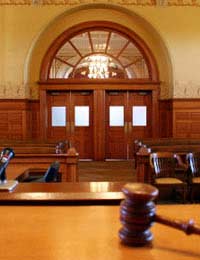The Landlord and Tenant Acts

The Landlord and Tenant Acts cover both residential and commercial tenancies, but the most relevant Acts to residential landlords are the Acts of 1985 and 1987.
Landlord and Tenant Act 1985
The Landlord and Tenant Act of 1985 consolidated parts of landlord and tenant law which were previously covered by the Housing Acts, together with the previous Landlord and Tenant Act 1962, and added in some amendments which took account of recommendations from the Law Commission.The Landlord and Tenant Act 1985 is the most important piece of Landlord and Tenant Law and deals with most of the practical aspects of legislation applying to landlords. The Act covers the information that you need to give to a tenant; provision of rent books; the fitness of rented accommodation for human habitation (and what your responsibilities are when it comes to maintenance of a rented property); service charges and accounts; insurance; managing agents and other miscellaneous issues that affect the day to day operation of a tenancy agreement.
Section 11 of the Landlord and Tenant Act 1985
This section is the most used and quoted section, mainly because it sets out the landlord’s responsibilities with regard to repairs and maintenance. A tenant can take a landlord to court for financial compensation that results from a landlord's failure to repair a property – if the losses were foreseeable, and if the tenant has given the landlord every opportunity to get access to the premises and carry out the repairs or maintenance.The amount of damages that the tenant can claim will depend on the facts of a case, and the losses they incurred. Compensation might be the cost of the tenant carrying out the repairs, or having to call in a contractor themselves. It could cover the full cost of internal decoration, an element of compensation for the inconvenience of living in premises that were in disrepair, any injury to health, the costs of moving to alternative accommodation, and the costs of storing furniture if it can’t be kept in the property. The court can also order a landlord to carry out certain repairs.
The Landlord and Tenant Act 1987
Amendments to the 1985 Act have come into force since, including the Landlord and Tenant Act 1987 which gives tenants certain rights when they are renting a flat. This Act covers a tenants right to first refusal if their landlord decides to dispose of a property by selling it on; the amount of notice that a landlord needs to give a tenant if they are disposing of a property and how tenants can enforce their rights.If a landlord wants to sell an interest in a building that contains flats, he legally has to offer it to the tenants before putting it on the open market. He also has to serve formal notices on all of the tenants telling them that he intends to sell the building and must give them time to consider the offer.The 1987 Act also covers what happens when a landlord decides to vary the terms of a lease; matters that apply to the management of a leasehold property and the information that a landlord has to give to tenants of flats and leasehold properties.
The Landlord and Tenant Act 1988
This Act deals with the requirement of a landlord to reply within a reasonable amount of time to any request made by a tenant for permission to assign, sub-let or charging the property, and stipulates that a landlord’s consent cannot be unreasonably withheld.- What's a Live-in House Guardian?
- Will Changes to the Local Housing Allowance Affect Landlords?
- Landlords Trade Associations
- Making the Inventory Watertight
- How to Be a 'Green' Landlord
- Landlords from Hell
- How Councils Are Helping Landlords
- New Laws When Converting Your Property for Student Lets
- Common Problems and Pitfalls of Renting a Property
- The Governments Plans to License Private Landlords
- How the Recession is Affecting the Rentals Market
- Mediation Services for Landlords
- The Race Relations Act and Property Lettings
- Equal Opportunities and Property Lettings
- The Eviction Process
- Health and Safety Legislation
- Squatters: The Protection from Eviction Act
- Different Types of Tenancy
- Disability Discrimination Act and Property Lettings


Re: Tenants and Gardens: Who is Responsible for Maintenance?
Been told remove two seater settee used in my garden under gazebo, association have threatened…
Re: Can a Tenant Run a Business from My Property?
A neighbouring property - let by a housing association - had a Christmas tree planted in it about 25 years…
Re: Tenants and Gardens: Who is Responsible for Maintenance?
Iive in housing Association property I have my £5000 of fencing right round my property my…
Re: Tenants and Gardens: Who is Responsible for Maintenance?
I live in a tower block & some of the residents took over the communal garden, & those that…
Re: Tenants and Gardens: Who is Responsible for Maintenance?
I live in a housing association property and the concrete is in need of replacing there are…
Re: Tenants and Gardens: Who is Responsible for Maintenance?
Hi I live in a Council property. My front garden is my own but not shared with neighbours. How…
Re: Tenants and Gardens: Who is Responsible for Maintenance?
I live in an Housing Association 2nd Floor flat. There is a tree which now covers the whole of…
Re: Tenants and Gardens: Who is Responsible for Maintenance?
I am in a ground floor flat, private tenant, in a block of 4 flats. Above me is privately…
Re: Can a Tenant Run a Business from My Property?
My tenant wants to run a counselling business from my property with clients visiting on a one - to-one…
Re: Can a Tenant Run a Business from My Property?
My tenant wants to run a counselling business with clients coming to the property.